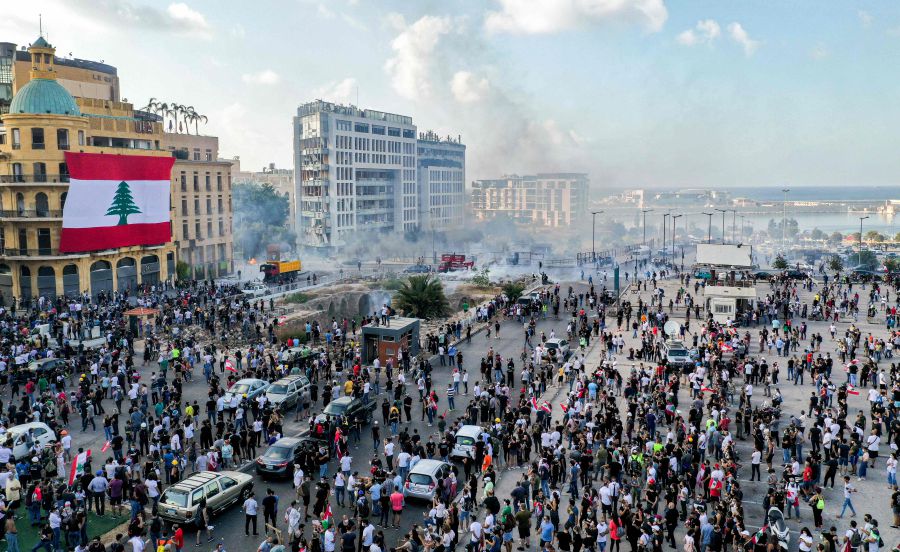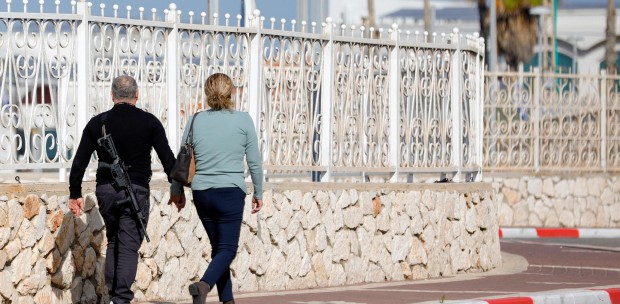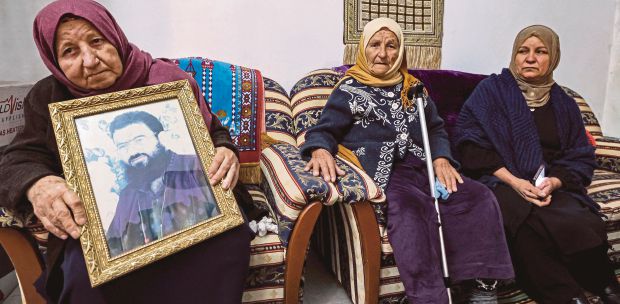Lebanon is often in the news but unfortunately for the wrong reasons.
Besides the explosion in Beirut that killed more than 200 people a year ago, there are almost daily violent protests by Lebanese citizens who are angry at their leaders' failure to solve the country's serious economic problems.
A recent World Bank report shows that Lebanon's economy has suffered a drastic decline. Its gross domestic product shrank from US$55 billion in 2018 to US$33 billion last year. In terms of GDP per capita, it fell by around 40 per cent in dollar terms. The country's currency depreciated by 129 per cent last year in relation to a basket of other currencies. Since Lebanon imports almost everything, including food, this resulted in increased inflation, averaging 84.3 per cent in 2020.
And, even though there has not been any violent conflict between the major groups since 1990 due to their agreement that year to divide political control among themselves — the president will always be a Maronite Christian, the prime minister a Sunni Muslim and the speaker of the Parliament a Syiah. Nevertheless, the jockeying for power is still quite intense.
Truthfully, the political leaders are the cause of the problems. They have been using funds from the government's coffers to obtain popular support. As a result, the government's expenditures have gone out of control, causing Lebanon to be the third most indebted country in the world after Japan and Greece.
This is exacerbated by the actions of another group — the greedy bankers, who kept lending money to the government to maximise profit without any qualms regarding the harm to the country's economy in the long run.
Theoretically, all banks can also do this since they do not really lend money obtained from people's deposits. Contrary to popular belief, most of the deposits in the banks' accounts are created after lendings take place and not before. Bank lendings create new local currency, which is then recorded as deposits in their balance sheets, allowing banks to give out huge loans to governments, corporations and individuals.
But, in most countries, there are controls to limit the amount of debt in local currency that the government can take. Unfortunately, such controls are very weak in Lebanon because the bankers are in collusion with the political elite to enrich themselves at the expense of ordinary Lebanese.
The Lebanese government also borrowed United States dollars from Lebanese banks. In the past, the banks received a lot of dollar deposits from Lebanese expatriates who were reassured by three factors — the pegging of the Lebanese pound to the US dollar, the high-interest rates on the deposits and the Lebanese banking secrecy laws which led to Lebanon becoming known as the "Switzerland" of the Arab world where the rich and powerful can safely stash their money, away from prying eyes.
It also resulted in Lebanon's economy becoming very dependent on inflow of dollars. The banks, in turn, deposited the dollars into the Lebanese central bank, which also paid them lucrative interest payments.
The central bank then lent these dollars to the Lebanese government, which then spent them recklessly for political purposes without a proper plan in place to pay back the dollar-denominated loans. The government's debt situation increasingly got worse, especially after the 2018 elections when the government increased the pay of government employees to secure their votes.
In late 2019, the government belatedly decided to increase its revenue. But instead of taxing the rich, the government impose a tax on WhatsApp calls, a very unpopular decision, especially among ordinary Lebanese because that is how most Lebanese keep in touch with their relatives and friends overseas.
This led to huge protests by young Lebanese who perceived the difficult situation facing the — in terms of jobs and high cost of living — as largely due to the country being run by corrupt political elite from an earlier generation.
The chaotic situation triggered an exodus of dollars besides discouraging foreign exchange inflows thereby contributing to a collapse of the Lebanese currency, which slid from the official 1,500 against the dollar to a black-market rate of 21,875 in mid-July, leading to the ongoing economic crisis.
There is no solution in sight. The rich and powerful elite in Lebanon are not motivated to change things since they can still survive using their considerable savings.
As is always the case in countries where economies are dependent on the banking sector, the ones who really suffer when things go wrong are the low-income earners. According to the World Bank, more than half of Lebanon's population is classified as poor.
In the meantime, the wealthy political leaders and bankers seem more focused on remaining influential and powerful in Lebanese politics rather than solving the country's economic problems.
The writer is a professor at the Faculty of Business and Accounting, Universiti Malaya
The views expressed in this article are the author's own and do not necessarily reflect those of the New Straits Times





